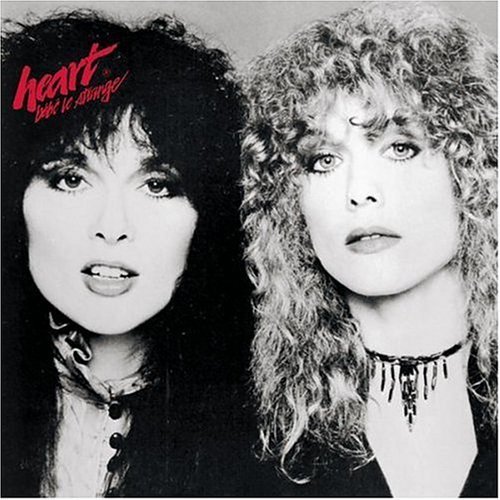Hello everyone! Remember back when you were 11 and you read Ender's Game, and it blew your mind because you somehow didn't see the twist coming, and you would have killed a baby goat to see a movie of it?
Yeah, that was me.
I was the archetypal audience for the book. A gifted child--and didn't I know it, as part of a gifted program at school and alienated by my terrible lack of ability at sports--and a bookish one, and one who had one older sibling who, if I squinted, could seem tyrannical, and a similarly sympathetic younger sister. This was a book about ME. More or less. Minus the part where I got recruited for war.
It's a refrain Card was to take up. His introduction to the "Author's Definitive Edition" ten years later talked about how the book stirred the hearts of alienated, "gifted" kids everywhere.
Also, it's a book about videogames. About strategy, with strategic decisions that put the Hunger Games to shame. (The enemy's gate is down!) Looking back, I liked the book for many of the same reasons I liked the more juvenile
Redwall. Redwall is also about a young, gifted but isolated individual who has to reason through a series of puzzles in order to fulfill his destiny, although the Abbott never tricked Matthias into committing genocide.
In the last few years, Orson Scott Card's politics have seemed entirely out of step with his sympathy for the unloved and alienated.
This article from Salon makes for some interesting speculation, but ultimately we can just presume that the guy, like all people, is a crazy mess of contradictions.
But let's talk about the book. And about the
absolutely spec-fraking-tacular trailer that dropped a few weeks ago. Oh man, my 11-year-old self did backflips inside. I promptly went online to share my joy--and quite rightly, got questioned.
After all, if you scroll down this blog three mere posts, you will read my public repudiation of Card. I don't want anything to do with the guy, although I bear him no personal ill will; it's his political activism I find repugnant.
Truth: I can lapse enough to see one movie. It's one thing to not want your name to appear in print as a representative of him; it's less (or so I thought) of a moral compromise to pay nine dollars to partake in a piece of entertainment made by a huge group of people including Card. I don't like that he's involved. I don't like his politics. But I'm human. I want to see the damn movie more than I want to make a statement by withholding nine dollars.
Until I realized something else. And in that realization, it all unraveled.
Ben Kingsley is a British actor of Indian descent. In the film, he's cast as Mazer Rackham, a character of Maori descent. He wears a set of Maori facial tattoos.
I don't know much about Maori facial tattoos. I work on an Indian reservation (or Native American or First Nations--the truth is that most of my students and fellow faculty still use the term "Indian") and I know a lot about indigenous issues.
None of my students like
Pocahontas, Dances With Wolves, or
Last of the Mohicans (except for the fact, which we all will admit, that the last has stunning music). None of them want to see a white person adopted by Indians saving the day. They roll their eyes and groan at the casting of Taylor Lautner as a Northwest Coast Native, and then his silly ad hoc rationalization that he's got a tiny bit of Native blood in him somewhere. They've all heard the old chestnut "My great-grandmother was a Cherokee princess!" (Proper response: "You too? That Cherokee princess sure got around.")
They do like movies like
Thunderheart, where the complication of Native ancestry is acknowledged and explored, and modern Natives, with the modern rez issues, get screen time instead of their romanticized ancestors. They want to see their race portrayed as normal modern human beings who still hold onto their unique culture, by Native actors, or in the case of Val Kilmer, actors whose parts acknowledge their Native ancestry without laying claim to tribal identity.
A quick Google search of "Maori facial tattoos meaning" produces this:
Ta moko - traditional Māori tattooing, often on the face - is ataonga (treasure) to Māori for which the purpose and applications are sacred.
I don't know what justification the producers of
Ender's Game can offer, but I can't imagine a justification that would explain to me why an actor whose qualification is "more or less brown" gets to wear tattoos specific to one people's sacred traditions. In a multimillion dollar movie. Because why? It seems to be solely to show how Mazer Rackham is a badass.
The tattoos were never described in the book, IIRC. Card is famous for not describing how people look, but you'd think he would mention facial tattoos!
Can't give up the tattoos, Summit Entertainment? Then find a Maori actor who is rooted in the culture and language and people of New Zealand. There's no shortage of Maori actors on those islands!
This points to a much greater problem. This problem encompasses Card's politics, Hollywood's lack of respect for indigenous people, and really, all the things I didn't see in
Ender's Game when I was eleven.
John Kessel has it right in his provocative essay,
"Creating The Innocent Killer." Ender's Game skirts responsibility, because it assumes that Ender's motivations carry the morality of the day. Ender kills two boys in cold blood because he wants to win. Each murder, of Bonzo and Stilson, is astonishingly sympathetic.
I imagine that the desire to pay service to the story is, to the minds of the Hollywood elite painting Maori traditions on an Englishman's face, a noble justification on its own.
In the novel, nothing is really Ender's fault. He's being used, because he is so talented and so alienated, in order to create the perfect weapon. This resonated with me because I felt distanced, bullied and used.
Shockingly, in all the discussion of this book, I've never heard anyone say "Well, how could Ender have stopped it?" Very easily, actually. Ender knew, throughout the book, that he was being used by a corrupt system and all he had to say was "no, I'm done." At several points he tries, half-assedly, to stop it.
But in the end, Ender's inherent goodness justifies things.
Why didn't he just say "no?"
I'm not going to lie. Telling me I was "gifted" led me to genuinely see myself as better--more noble, smarter, with a great destiny--than every other person around me. All eleven-year-olds carry around major fallacies. But with
Ender's Game, we seem to have extended that fallacy, justifying Ender's actions because he was part of the system of the "gifted." He was told over and over again "you are our only hope" and he was somehow, despite his brains, not smart enough to see that this might be one more lie in a corrupt system.
We use this attitude to feed privilege. The kind of privilege that says sacred facial tattoos can be appropriated to sell a movie.
If teaching has taught me anything, it's that the idea of "gifted students" is utterly poisonous and was one of the worst influences on my childhood and my mental health. I'm not gifted. I think I have a great capacity for learning, especially in certain areas. But all my students have capacity for learning. Particularly on the rez, where college education and literacy are not held at a premium, "gifted" is a misnomer. My students who succeed are the ones who work their asses off.
They are the ones who don't let the deaths and drug abuse and poverty in their family stop them from turning in papers, who read and discuss works at a college level when they may not have read a book until last year, ever. They are the ones whose recent life trajectories are: rehab, clinic, GED, college.
I am damn proud of them.
And here comes this movie all about this special kid whose motives are so pure that he can't see through an obviously corrupt system, and he doesn't protest, but is used to commit genocide and just can't stop it because the system is too big. And in order to sell the movie, it's okay to violate the inherent sacredness of Maori tradition, to sell a big Westernized movie.
This is a movie about how certain people are special, about how certain people are inherently virtuous, and about how certain people have a profound understanding of humankind and their inherent goodness cannot be taken away, even if they commit genocide.
I call bullshit.
In Kessel's words, "No one is that special. No one is that innocent."
So you're human and you loved the book and you want to see the movie. I don't blame you. Until a few days ago, I was with you.
Now, I see
Ender's Game as another bucolic childhood dream, with its reality as far removed from the truth of human interaction as that of the talking mice and evil rats in
Redwall. The difference is, there's not a multimillion dollar movie campaign trying to convince you that mice are inherently noble.








